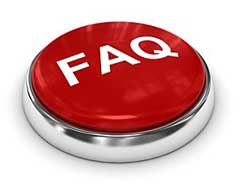
FAQ
Here are some basic questions about filing a tax appeal that I get all the time:
Possibility One: if your assessment is too high – obviously you would want to appeal to try to lower the assessment;
Possibility Two: if your assessment is about right and you are relatively comfortable with it – you should still appeal –under this scenario you need to appeal your assessment to freeze what you have and keep the tax assessor from being able to raise your assessment for three years! Keeping the tax assessor from being able to increase your assessment for two additional years could, and most likely will, save you thousands of dollars.
Possibility Three: if your assessment is below market, out of all of the possible scenarios, in my opinion, this is when it is most important for you to file an appeal. If you file an appeal and handle the appeal in a certain manner, you can get the present assessment frozen for the tax year appealed plus two more additional years. As stated in the previous scenario, freezing your assessment for two additional years could, and most likely will, save you thousands of dollars.
Possibility Four: This category is where you have appealed within the last three years and you are in the “frozen” period. In this scenario, I generally do not recommend appealing.
